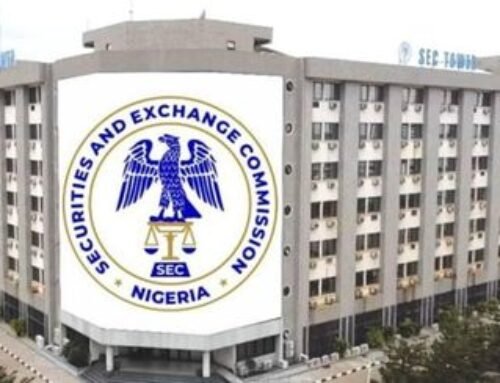Credit Rating Agencies (CRAs) play a major role in the Financial Markets through the reduction of information asymmetry amongst lenders, investors and issuers, regarding the credit worthiness of Companies, States, Governments and Countries. Thus, CRAs have become a cardinal part of the global financial landscape and its ecosystem.
The Securities and Exchange Commission (SEC) of Nigeria issued the Credit Rating Companies Rules, 2012 for investors’ protection in the issuing of debt securities and public issue of shares. Currently, there are three major players in Nigeria’s Credit Rating industry, duly approved by SEC. They are: DataPro Limited, Augusto & Co Ltd and Global Credit Ratings Co Ltd. All three Companies commenced operations as Ratings Agencies in the early 2000s.
The importance assigned to the ratings of participants of all Financial Markets cannot be overemphasized and overestimated. Simply put, it will be difficult for Capital Markets to function effectively and efficiently without the Rating Agencies. As financial firms and bond issuers begin to rely more on real-time analytics and data analyses, CRAs must also adopt and adapt to new technologies and approaches to understanding the Capital Market.
In order for Nigeria to regain economic stability during and post-COVID-19 pandemic period, there is great and urgent need for collaboration and synergy between the public and private sectors with active involvement of the CRAs, Otherwise, it will become an onerous and herculean task.
It must also be noted that big data along with new methods of analytics can help cushion the effect of the economic downturn. Obviously, the possibilities of big data in Information and Communication Technology (ICT) are very exciting and germane for financial institutions (including banks), organisations and Credit Rating Agencies. The global big data and business analytics markets was valued at 169 billion U.S dollars in 2018 and is expected to grow to 274 billion U.S. dollars in 2022.
In recent years, CRAs have placed big data at the centre of their strategy, and are investing heavily in developing their analytic proficiency. In 2015, S&P Global, then called McGraw-Hill (the parent company of Standard & Poor’s) purchased SNL Financial, a data-driven financial information firm, in order to bolster their data analytics offerings in the years ahead. According to S&P Global 2015 Annual Report, “both S&P Capital IQ and SNL possess strong and sophisticated content delivery platforms”. In addition, “the combined team is now determining how to most effectively consolidate into one best-in-breed product platform” (Vuk Magdelinic, 2018).
Chris Iervolino, a research director at Gartner, stated that the ability to incorporate analytic tools directly into financial systems allows companies to turn big data into relevant information. This will now allow firms (including Rating Agencies) in the Capital Market to reduce latency in the completion of a transaction and enhance their ability to derive value from their data more quickly and accurately in a cost effective and operational efficient manner.








